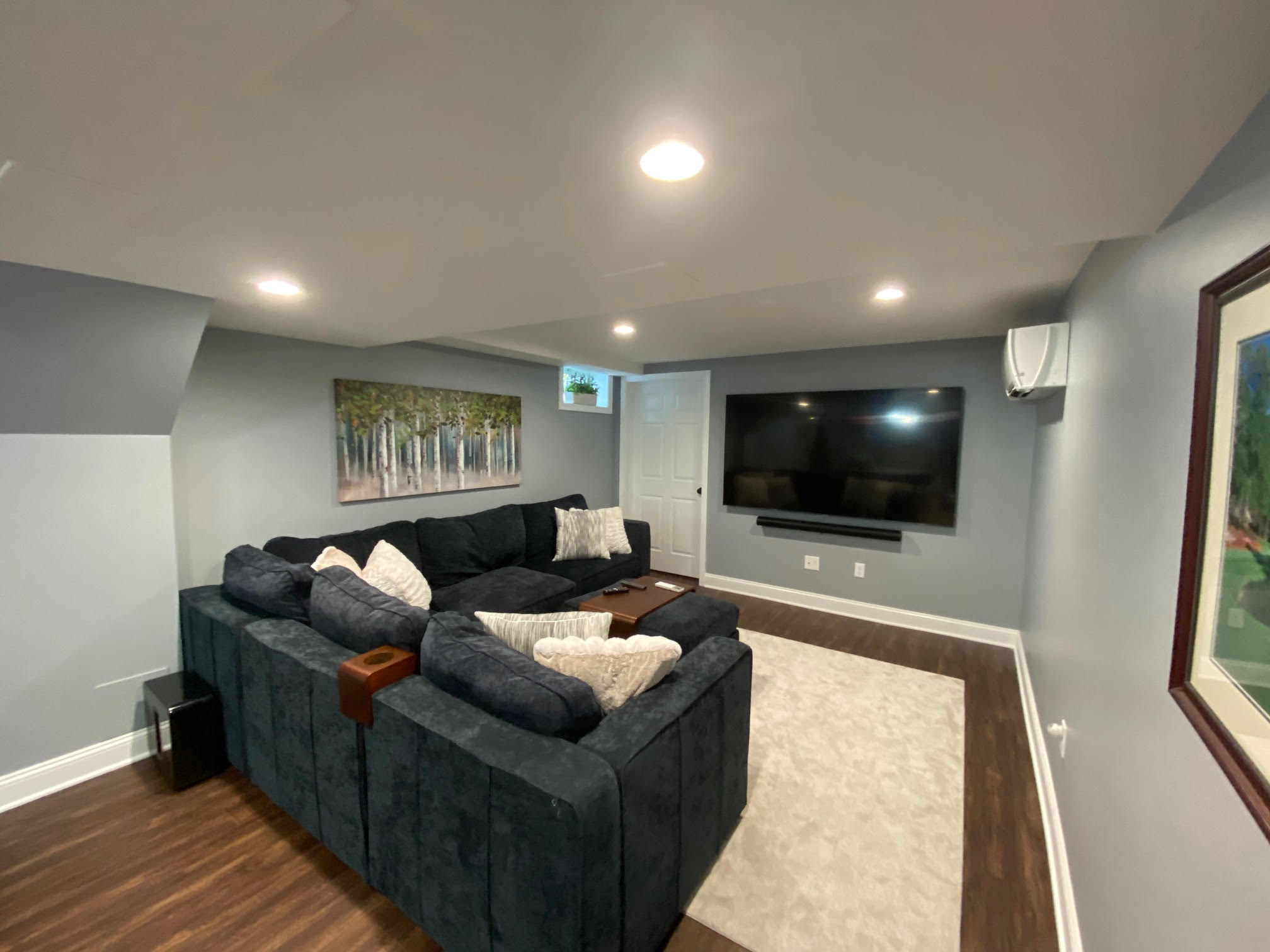By BRIAN SCOTT LIPTON
It’s true, as Dorothy Gale learned in The Wizard of Oz, that there’s no place like home. But it’s equally true that the home you bought may not suit your current likes or needs—which is why, more than ever, home improvement projects are on the upswing, from large-scale renovations to touch-ups in the kitchen and bathroom.

“My business has doubled in the past two years,” says Jim Trammer, co-owner of Better Built Basements, located in Berlin, Connecticut. “So many people are either working from home or just staying home, largely because of COVID. As a result, we’ve seen a huge upsurge in building home offices, adding bathrooms to the basement or the first floor, and even building entire ‘in-law apartments’ within homes as many older people have sold their own houses and moved in with their kids, either to help out or because they need help.”
The question for many people as they embark on home improvements is whether to do it themselves—aka DIY—or hire a professional. And as experts point out, it’s not necessarily a simple question or one that has an all-purpose answer. “What is most important is that you understand the scope of the job, that you have the right tools do the job, and above all, that you are honest about your own skill set and ability to complete the job, says Calvin LaMont, who co-hosts Buy It Or Build It on HGTV with his brother Chris.
“If you’re remotely handy, many projects are easier than you think,” adds Chris LaMont “You can replace kitchen hardware, doorknobs, even doors. Staining the deck is something you can learn and can be fun for a couple. I think you can even install a 12″x12″backsplash in your kitchen, and you can easily sand or replace your cabinets. You can install a shower head or paint your walls. You can probably even change your baseboards or take off paneling. But, whatever the project, we always recommend starting small to be sure.”
Ads Lana Camera, creative director of New Haven-based TileAmerica Inc: “I believe most people can handle their own kitchen backsplash if it’s a simple design with square tiles and doesn’t require much cutting. I would say the same thing about tiling around a fireplace or a feature wall in powder room. With any tile project though, there should be no surprises. So cut the tile before applying the glue and do a dry run on the floor to make sure everything fits and there are no odd corners.”
Many home improvement projects are, however, best left to the professionals. “We don’t really recommend doing a large tile floor on your own,” says Camera. “The bigger the area, the more room there is for error. And the larger tiles you need for floors are both harder to cut and harder to lay down, because of their size and weight. Plus, you have to mix mortar and grout the tiles afterwards, which is never easy to do.”

The LaMonts have an even larger lists of dos and don’ts. “If we’re talking about installing a new roof or deck, or anything that can collapse, you want to be extra-careful and get a professional. For example, roof shingles are much heavier than you realize, and they can cut you,” says Chris. “Appliances can be tricky. Installing a new refrigerator means you’ll have to find the water line and make sure you turn the water off first, so it really depends on your experience. Dishwashers seem easy, but they must be connected to the sink and there are lots of other things you probably don’t know you have to think about, so we recommend leaving it to the professionals,” he notes.
There are even more don’ts! “Absolutely never turn on a gas line” he adds. “I would avoid anything that involves electricity, except changing out a plate or switch. I always say once you have to get a screwdriver and or tinker with wires, it’s best to hire an electrician. As for plumbing projects, if you want to change a single vanity to a double vanity, go ahead, but with any other DIY project, you risk flooding and water damage if you don’t hire a professional.”
What about even larger projects? Be careful of anything that involves the structure of the house. Too often, people try to open walls where they weren’t built to open,” says Chris. “We once wanted to change the placement of window, and when we tried to do it, we found there was a beam and then we had to restructure the wall. Those are the kind of jobs you think might cost $500 and then it costs you thousands. So, hire an engineer first to see if it could be done or how it could be done.”
Regardless of the project, there are some guidelines everyone agrees on, starting with safety. “Nothing is worse than you or anyone else getting hurt because of something you did,” says Calvin LaMont. “Think about that.”

“It’s really important that you do your homework first to make sure you’re up for the project,” adds Camera. “Too often, we’ve seen people get overwhelmed partway through a project, throw in the towel, and then a call a professional to fix it or finish it. That always costs more money in the long run. And if you do something you’re not good at, is it really a bargain if you don’t love the finished project?”
“One reason we recommend hiring a professional for large demolition projects, supporting beams, changing walls, electrical and plumbing projects is that if you screw up, it can have a negative effect on your home insurance,” adds Trammer. And if you didn’t get the right permit, then it can also have legal consequences.”
So how do you find the right professionals to work on your home? “Ask them how long they’ve been in business, ask if everyone involved is licensed, and make them give you both references of other clients and photos of similar projects so you can see their work,” says Trammer.
“And make sure you get a written quote and estimate,” he stresses. “In fact, make sure everything is writing in a contract that uses the specific language that is required in Connecticut. I have seen too many ‘contracts’ that were scribbled on a napkin. The fact is you actually have three days after you sign a legitimate contract to change your mind. Be suspicious of anyone who tells you otherwise.”
Speaking of “quotes,” is the cheapest contractor always—or never—the way to go? “I encourage people to get multiple quotes because I want people to pick us because we are the right company for them,” adds Trammer. “I always say you can’t have good, fast, and cheap; you need to pick two out of those three.”
And whether you hire a professional or not, do take Chris LaMont’s words of wisdom as the best advice in making your decision. “I know it’s cool to see these finished projects on someone’s Instagram or Twitter. But be careful. If all of this was really as easy as it looks, then everyone could do it! And we’d be out of business!”








More Stories
Suffield’s “Sneaky” Proposal
Enfield Bans Pride Flags
Flight From Texas